This is your one-stop shop for all that you need to know about menopause – its symptoms, stages, medication, and treatments.
Contents
A woman experiences her first period at about age 12 in her life(Menarche). The two sex hormones, estrogen, and progesterone are primarily responsible for preparing women for pregnancy.
This decades-long cycle continues month by month until it ends with menopause. Menopause naturally occurs in most seniors as they progress. However, most senior women are not able to identify this state and lack knowledge about menopause symptoms.

Menopause occurs at the age of 40 and above when a women stop mensurating. However, some women might have induced menopause due to the removal of their ovaries (surgical menopause)or chemo-induced menopause through chemotherapy. The symptoms of both artificial and natural menopause are the same.
If you’re approaching the age of menopause and seeking the answer to your questions, hopefully, this guide will cover everything you need to know.
What is menopause, and when does it happen?
Menopause is a hormonal change that occurs in women when they stop mensurating. It typically occurs between the ages of 40 to 55.
If a senior woman has not had her period for 12 straight months or is experiencing the symptoms of menopause, her doctors may diagnose her as menopausal.
During the transition, the levels of the female hormones estrogen, progesterone, and testosterone start dropping off. The transition is the end of a woman’s menstrual cycle and can last up to 10 years in many cases.
Menopause is a common part of aging; it usually happens after women reach their 40s. However, some women experience menopause at an early age due to reasons such as elective surgery, chemotherapy, and other stress-related factors.
Menopause Symptoms
Most women start to develop changes in their bodies, usually months or years before they encounter menopause. Apart from consistently losing your period, you may experience or notice symptoms that include:
- Irregular or missed periods
- Hot flashes
- Bladder irritability/need to pass urine more frequently
- Night sweats
- Slower metabolism
- Dry skin, eyes, or mouth
- Insomnia
- Memory problem
- Hair loss
- Bone loss
- Decreased sex drive or dry sex
- Vaginal dryness/discomfort during sex
- Emotional changes such as mood swings, mild depression, or irritability
- Thinning of hair and dryness of your skin
Weight Gain During Menopause
You may gain weight during menopause. You may have more fat around your waist, hips and thighs. To stop weight gain, you can use exercises for weight management.
However, before starting regular exercise, ask your doctor or healthcare provider if the daily exercise is safe for you as menopausal women also experience stiff joints and brittle bones. Use light exercise and training to stay active.

Irregular Sweating and Hot Flashes
Hot flashes or sweats can occur in women as they are the two most common symptoms of menopause; if you experience these symptoms, visit your doctor to determine whether your condition is due to menopause or another cause.
What is Premature Menopause?
If a woman has menopause before her 40s, it is called premature menopause. It can happen naturally, or it might be induced artificially.
Premature menopause happens when the ovaries in a woman’s body get damaged from chemotherapy or are removed through a surgery called Oopherectomy or along with hysterectomy (removal of uterus).
Whether a woman undergoes premature Menopause or natural Menopause, they will have similar symptoms such as hot flashes, missed periods, and sleeplessness. Doctors run physical exams and test the blood to diagnose premature menopause.
Diagnosis and Tests for Menopause
Like all menopausal women, you will experience lowered estrogen levels as the production of ovaries stops. A low estrogen level means changes in the overall health and emotional behavior of a woman.
Low estrogen levels can also lead to increased risk for certain health conditions, such as osteoporosis, colon cancer, tooth loss, and ovarian cancer.
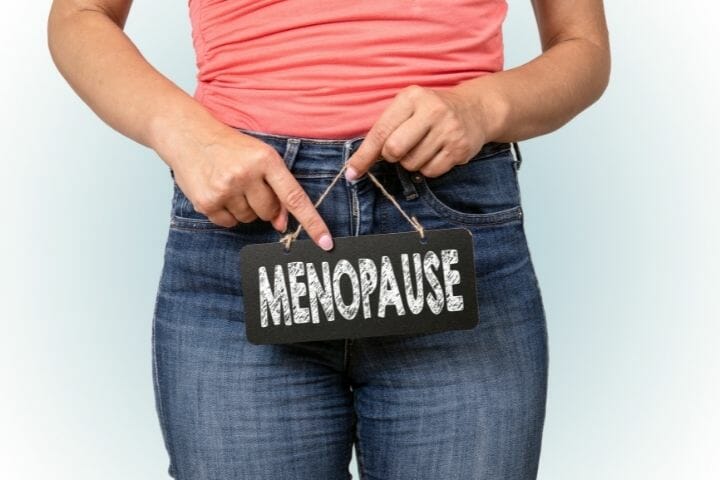
Your healthcare provider or doctor will most likely perform a physical examination and take a blood sample to diagnose menopause when you have had no mensural periods for 12 months.
The doctor also does tests to see whether a menopausal woman has other health risks. However, hormone levels may fluctuate drastically in females from time to time, so it is not always reliable for testing menopause.
How can Seniors deals with menopause?
When an individual woman experiences menopause symptoms, they need to know how to deal with them. Seniors require to follow some precautions to avoid or lower the effect of these symptoms.
Hot flashes
It is a sudden wave of heat in the face, neck, and chest that a menopausal woman experiences. The hot flashes are sometimes accompanied by sweating, racing heartbeat, and flushing.
Treatment
Doctors recommend that women use estrogen or estrogen therapy with progesterone to ease hot flashes. Doctors also use effective antidepressants called selective serotonin reuptake inhibitors (SSRI) to help in hot flashes.
Hormone therapy providers also use certain blood pressure drugs, antidepressants, and gabapentin to ease hot flashes.
Night sweats
Night sweats are hot flashes that occur when a person is asleep. In North America, 75% of women have night sweats during perimenopause.
Treatment
Some women take the help of hormone therapy to ease these night sweats. Healthcare providers use medication such as antidepressants and drugs to treat epilepsy to ease night sweat symptoms. You should seek relief from your clinician if your night sweats worsen.
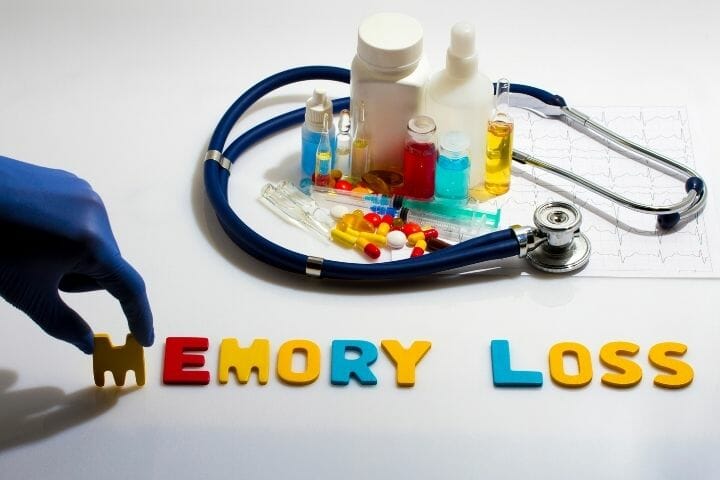
Memory Loss
Memory loss in a menopausal woman is as real as it affects up to 60% of women during the transition. A woman may feel brain blur or notice forgetfulness and loss of focus during the early stage of menopause.
Memory loss is linked to the sudden decline of the estrogen hormone. Fortunately, there are treatments for the memory problem.
Treatment
Doctors advise women to do regular aerobic exercise, and it helps improve memory and cognition of the brain. You should also sleep well to maintain your cognitive performance.
Doctors also advise following a Mediterranean diet as it helps protect the aging brain. Hormone therapy is effective in hot flashes, night sweats, and vaginal dryness, along with improving the brain’s cognitive function.
Desert-dry Sex
In women, the decreased estrogen level can cause their vagina to become drier, narrow, and possibly inflamed or irritated. One-third of senior women suffer from dryness and pain during intercourse. However, most women don’t speak about this problem and often hesitate to discuss it with their doctor.
Treatment
If you experience symptoms of dryness, you should take vaginal estrogen in low doses. The vaginal estrogen is highly effective and is accessible in different forms including, cream and tablets.
You can also use other treatments such as OTC water-based lubricants, vaginal moisturizers, or silicone-based lubricants to help reduce friction during intercourse.
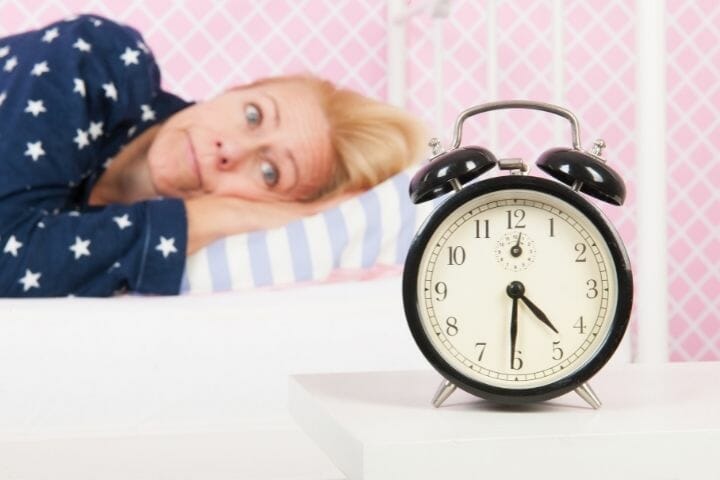
Insomnia
According to a report, about 40%-50% of women will experience a change in their sleep cycle during menopause. Women and seniors also experience insomnia as a result of decreased hormones present in the body.
You may also wake up because of night sweats. Other reasons that increase your risk of insomnia include stress, depression, and an increased urge to urinate at night.
Treatment
Healthcare providers advise having no caffeine after midafternoon to prevent insomnia. You can also use other sleep medications after your doctor prescribed you.
However, you should avoid the use of alcohol as it may help in sleeping but later disrupt the night. You can also seek help from hormone therapy to ease sleeplessness.
Fire-starter Rage
Menopause greatly affects the emotions of a person. Women during menopause may experience sudden anger, sadness, or intense feeling. The reason behind this emotional change is the fluctuation in the levels of estrogen which may affect serotonin production.
Doctors say that one in four perimenopausal and post-menopausal women will feel irritable, anxious, depressed, and have mood swings.
Treatment
To control your emotional symptoms such as stress or sadness, you should do some activities such as yoga and meditation daily. You should exercise several times a week, try deep-breathing exercises, and get good rest to make you feel less irritated.
Doctors also advise you to get yourself a massage. You can also talk about things you’re going through with your family to relieve your stress.
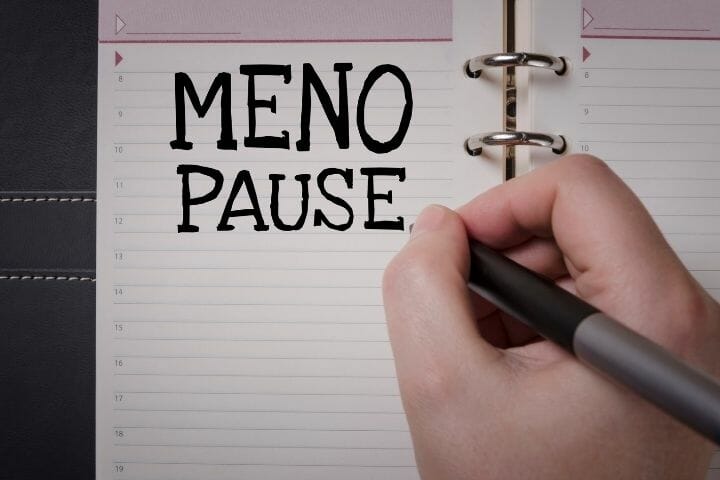
Heavy Bleeding
Before menopause occurs, about 90% of women experience 4-8 years of menstrual cycle changes because of erratic hormone production in the body. One more study states that during perimenopause, 77% of women will experience a minimum of three periods lasting for ten days or more. In these prolonged periods, at least three days have heavy bleeding.
Treatment
Doctors and clinicians advise taking low-dose of birth control pills as a treatment of heavy bleeding. The pills can help minimize and regulate the bleeding. However, if the bleeding still continues and interferes with your daily life activities, you should go see your doctor.
Heavy bleeding in seniors can also be a result of other medical conditions. It would be best if you got proper treatment to avoid any casualties caused by heavy bleeding.
What is the duration of Menopausal Transition?
Researchers divide menopausal transition into three stages: perimenopause, menopause, and post-menopause.
Perimenopause typically begins when a woman reaches her 40s. This phase is also divided into two stages, early-stage perimenopause, and late-perimenopause.
You may not see or notice any symptoms in the early stage but have your period delayed by a week or more. In the late stage, the gap between your cycle increases by two months. The process continues for 8 to 10 years until menopause start.
Doctors give perimenopausal women a lower dose birth control pill to help regulate cycles. The lower dose birth control pills are safer for women than regular birth control pills.
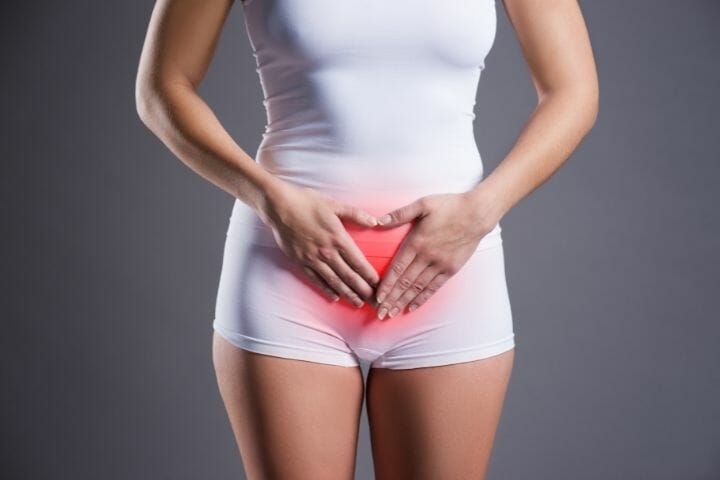
Menopause: The duration of menopause continues for seven to nine years. Menopause start after a woman has not had her periods for 12 consecutive months. A woman may experience the symptoms of menopause and get treatment from hormone therapy.
Postmenopause: In postmenopause, the periods are gone, and women will have no periods as they are not coming back.
Hormone Replacement Therapy For Menopause
Hormone replacement therapy or HRT effectively reduces the menopause symptoms, including hot flashes, night sweat, mood swing, insomnia, vaginal dryness, and more.
HRT affects the quality of life of women. It replaces or supplies the hormones absent in your body—most women who take HRT for hot flashes and sweat experience an improvement in their sleep and mood. HRT can be of two types:
Estrogen Therapy
This therapy is usually recommended for induced menopause caused by a hysterectomy. Low doses of estrogen are provided to the woman in the form of pills, patches, or creams.
Progestin Hormone Therapy
This therapy involves taking a combination of Estrogen with Progesterone. It is meant for women who still have their ovaries and uterus. Progestin therapy is administered either through pills or Low-dose Intrauterine Devices.
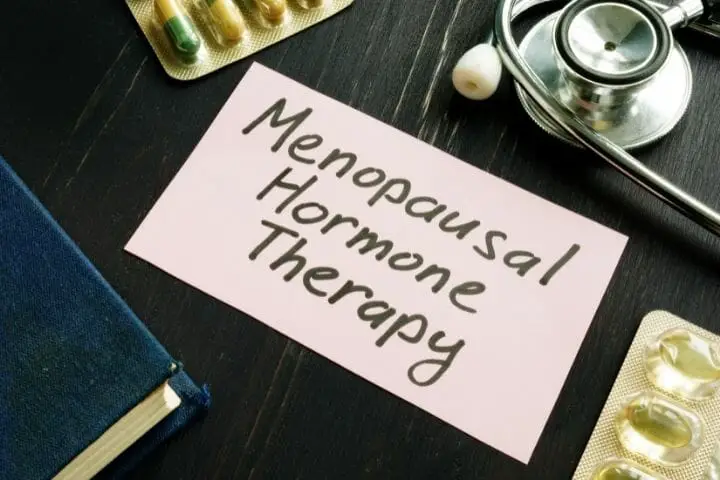
Natural Treatments for menopausal symptoms
Many women prefer to use natural remedies to treat their menopausal symptoms. Some natural supplements or food products act like estrogen and help fill estrogen deficiency.
You can use soybeans and wild yarn to help relieve menopausal symptoms. Soybean also includes phytoestrogen such as Genistein that increases production of progesterone, testosterone, and dehydroepiandrosterone levels.
You can also consume black cohosh as it helps reduce menopausal hot flashes and sweats. However, before using any supplement, ask your doctors about its benefits and safety uses.
Wrap Up
The two powerful hormones in the female body create a cycle that causes a woman’s body to be ready for pregnancy. After the women reach their 40s, they may experience the ending of their menstruation cycles.
Menopause can cause some symptoms that need treatments. With this Menopause guide, you can better understand menopause and how you can avoid mistakes in the menopause phase.
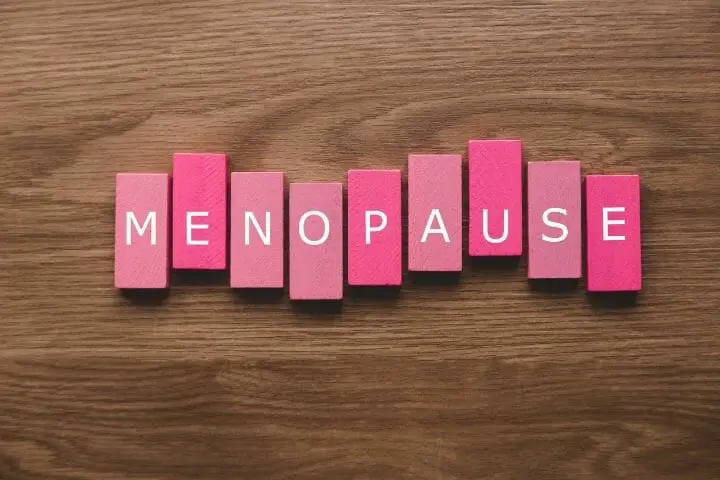
It is normal for a menopausal woman to experience weight gain. Women can maintain their weight and health by the tips mentioned in this guide.
Please share with us your experiences of symptoms and complexities related to menopause, and help us make this guide more comprehensive for other women. We would love to answer more questions from your side as well.
If you loved the content, please don’t forget to share it with others who need similar information and support!
